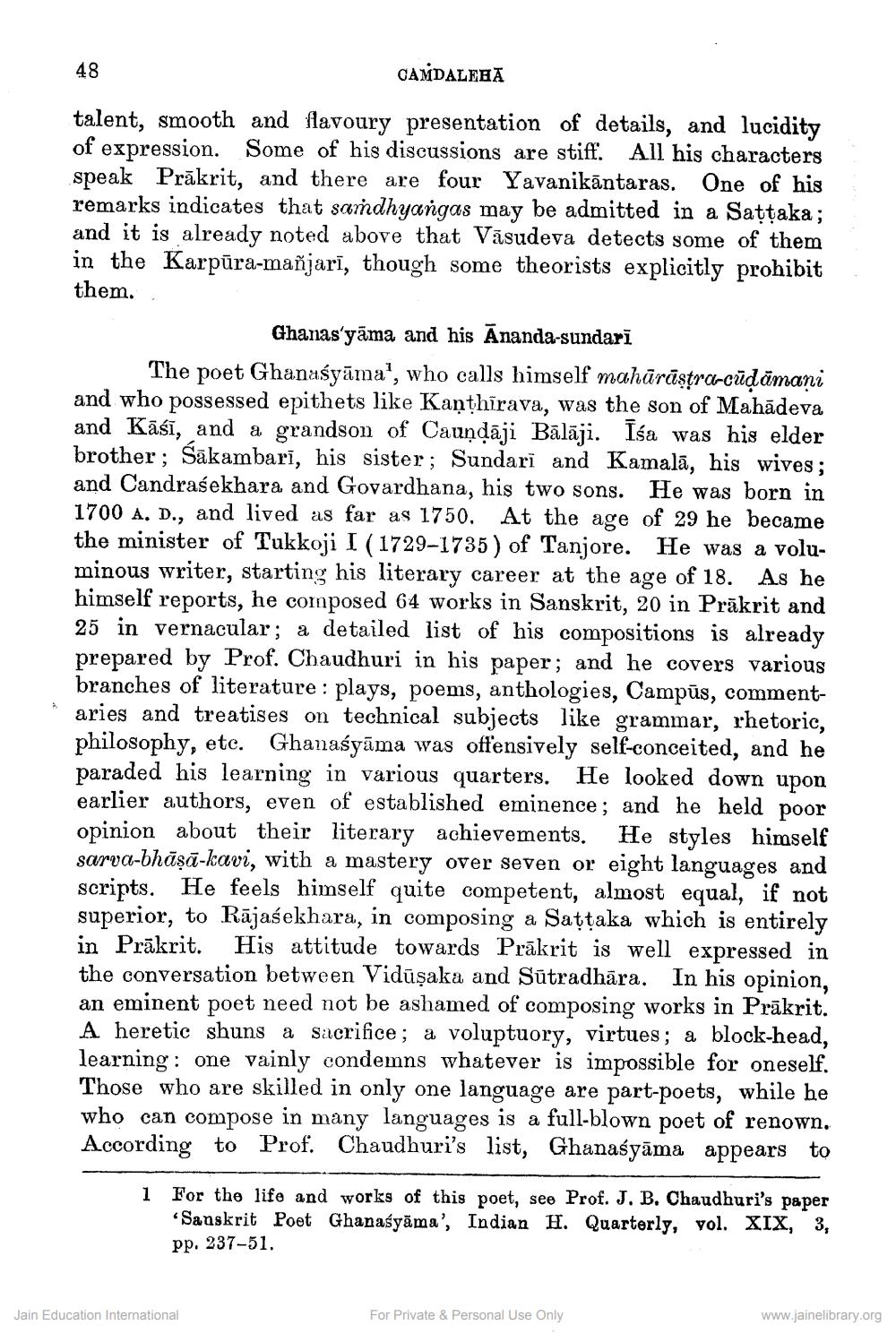________________
48
CAMDALEHĀ
talent, smooth and flavoury presentation of details, and lucidity of expression. Some of his discussions are stiff. All his characters speak Prākrit, and there are four Yavanikāntaras. One of his remarks indicates that sandhyangas may be admitted in a Sattaka; and it is already noted above that Vasudeva detects some of them in the Karpūra-mañjarī, though some theorists explicitly prohibit them.
Ghanas'yāma and his Ānanda-sundarī The poet Ghanaśyāma', who calls himself mahūrāstra-cūļāmani and who possessed epithets like Kanthīrava, was the son of Mahādeva and Kāśī, and a grandson of Cauņdāji Bālāji. Īsa was his elder brother; Sākambarī, his sister; Sundari and Kamalā, his wives; and Candrasekhara and Govardhana, his two sons. He was born in 1700 A. D., and lived as far as 1750. At the age of 29 he became the minister of Tukkoji I (1729-1735) of Tanjore. He was a voluminous writer, starting his literary career at the age of 18. As he himself reports, he composed 64 works in Sanskrit, 20 in Prākrit and 25 in vernacular; a detailed list of his compositions is already prepared by Prof. Chaudhuri in his paper; and he covers various branches of literature : plays, poems, anthologies, Campūs, commentaries and treatises on technical subjects like grammar, rhetoric, philosophy, etc. Ghanaśyāma was offensively self-conceited, and he paraded his learning in various quarters. He looked down upon earlier authors, even of established eminence; and he held poor opinion about their literary achievements. He styles himself sarva-bhāṣā-kavi, with a mastery over seven or eight languages and scripts. He feels himself quite competent, almost equal, if not superior, to Rājasekhara, in composing a Sattaka which is entirely in Prākrit. His attitude towards Prākrit is well expressed in the conversation between Vidūşaka and Sūtradhāra. In his opinion, an eminent poet need not be ashamed of composing works in Prākrit. A heretic shuns a sacrifice; a voluptuory, virtues; a block-head, learning : one vainly condemns whatever is impossible for oneself. Those who are skilled in only one language are part-poets, while he who can compose in many languages is a full-blown poet of renown. According to Prof. Chaudhuri's list, Ghanaśyāma appears to
1
For the life and works of this poet, see Prof. J. B. Chaudhuri's paper
Sanskrit Poet Ghanaśyāma', Indian H. Quarterly, vol. XIX, 3, pp. 237-51.
For Private & Personal Use Only
Jain Education International
www.jainelibrary.org




